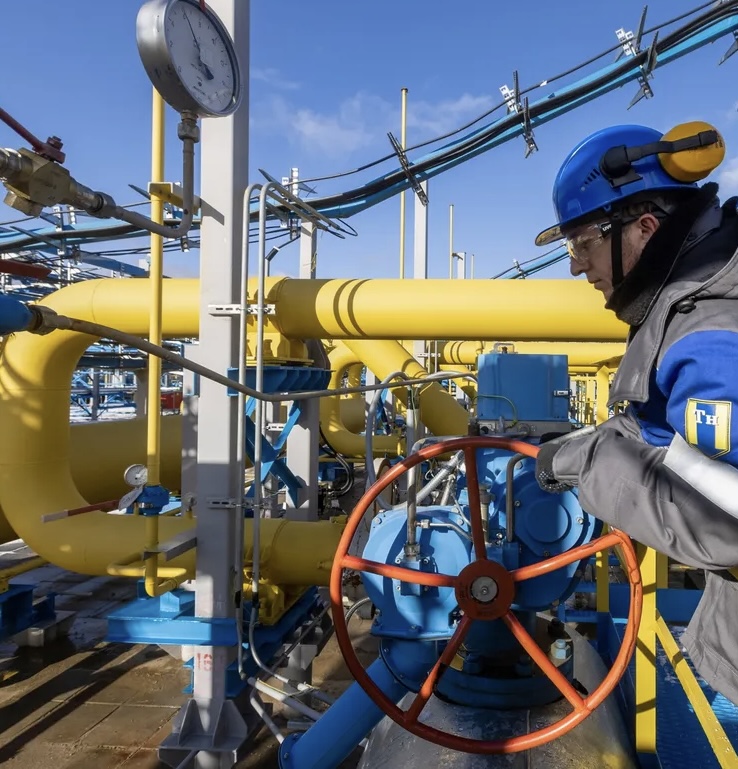KEY POINTS
- Austria’s Russian gas supplies were halted due to a pricing dispute.
- Other European countries quickly absorbed redirected Russian gas volumes.
- Colder temperatures and storage concerns strain Europe’s gas market.
According to firm statements, sources, and market data, a pricing dispute forced a second day Sunday’s suspension of Russian gas deliveries to Austria, while other European customers swiftly absorbed the unsold amounts.
Austria faces second day without Russian gas supplies
As the European Union attempts to lessen its dependency on Russian energy, Russia, which was Europe’s biggest gas provider prior to the conflict in Ukraine, has lost the majority of its clients. Nevertheless, despite the absence of a direct contract, considerable amounts of Russian gas nevertheless reach Slovakia, Hungary, and the Czech Republic. Serbia and Italy are also receiving smaller quantities.
Russia’s state-owned gas provider, Gazprom, ceased supplying Austrian energy giant OMV on Saturday after the latter threatened to seize gas in retaliation for a previous arbitration decision that had ruled in its favour.
Gazprom reported that daily Russian gas exports to Europe through Ukraine, the principal transit route for Russian gas to the EU, was stable at 42.4 million cubic meters on Sunday, despite the suspension of shipments to Austria. The 17 million cubic meters Austria used to receive daily are now being diverted to other European consumers.
SPP, the state-owned energy provider in Slovakia, acknowledged that it was still receiving Russian gas and implied that other European businesses had bought the supplies that were headed for Austria. According to a person with knowledge of the matter, there is a strong demand for the diverted volumes since Russian gas is still less expensive than many alternatives. According to Austrian officials, the nation has a lot of gas reserves and can import from Italy or Germany if necessary.
Geopolitical tensions reshape Europe’s gas market landscape
Reuters stated that there are already significant restrictions on Russia’s remaining gas routes to Europe. Due to disagreements, the Yamal-Europe pipeline via Belarus is closed, while the Nord Stream pipeline was shut down following underwater explosions. Both countries dispute Moscow’s accusations that the U.S. and Britain are to fault for the explosions.
Early withdrawals from gas storage facilities have been prompted by the rise in heating demand brought on by colder temperatures throughout Europe. To achieve its long-term storage targets, market analysts caution that the EU would need to acquire more liquefied natural gas (LNG) next summer.
According to reuters, The benchmark for European gas prices, Dutch TTF hub gas, reached €45.72 per megawatt-hour on Friday, the highest level in almost a year.



